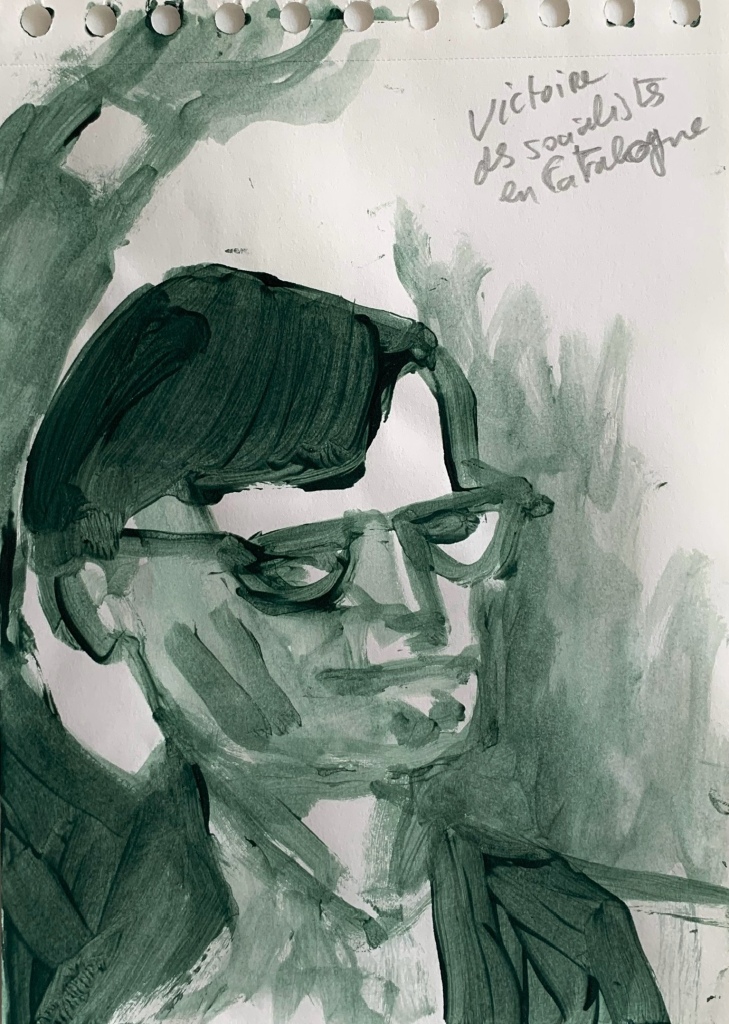
The party has won in the Spanish northeastern region for the first time, while pro-independence groups lost their majority. But Salvador Illa lacks enough lawmakers to form a government and faces tough negotiations.
For the first time, the Catalan Socialist Party (PSC) secured a victory both in terms of votes and seats. Collectively, independence parties lost the majority they’d held since the separatist movement known as the procès surged over a decade ago. And the political shift to the right seen elsewhere in Europe was reflected in Catalonia as well, with much stronger results for the center-right Popular Party (PP), the far-right Vox holding its own, and a new far-right, pro-independence party called Aliança Catalana claiming two seats for the first time in the regional parliament.
The debate over Spanish Prime Minister Pedro Sánchez’s push to grant amnesty to leaders of the 2017 unilateral secession attempt in Catalonia, in exchange for their parliamentary support following inconclusive national elections in July, proved very polarizing in Spain as a whole, but seems to have had the opposite effect in Catalonia: it has deactivated separatism and ended what was left of the procès, yet without granting the political right enough power to play the role of kingmaker in the formation of a new government.
But putting together a new Catalan executive will be no easy task. The winner of the night, Salvador Illa, secured 42 seats for his PSC, up from 33 in 2021. In his victory speech, he said that Catalonia is “opening a new era” that, he insisted, will be one “for all Catalans, whatever they think, whatever language they speak and wherever they come from.”
But it takes 68 seats for a majority in the 135-member chamber. The party that earned the second-highest number of lawmakers (35) is Junts, led by Carles Puigdemont, who also headed the failed 2017 secession attempt and later fled to Belgium to avoid prosecution.
A joint government with Junts in Catalonia seems unlikely. Instead, the challenge for Illa in the weeks ahead will be to achieve support from other leftist groups, most notably Esquerra Republicana (down to 20 seats from 33) and Comuns (6). Another option would be a stable deal with Comuns, supplemented by negotiations with other parties for abstentions and support on a case-by-case basis.
If everything fails, Catalans could be facing a repeat election in October.
But Illa made a point of saying that he will submit his name to lead a new executive in Catalonia. The statement was meant as a signal that he will not yield to pressure from separatist sectors to give up his chance at a regional premiership in exchange for Junts continuing to support Pedro Sánchez’s administration in the national parliament.
–
–
–
–
–
–
–
–
–
–
–
–
–
–
–
–

